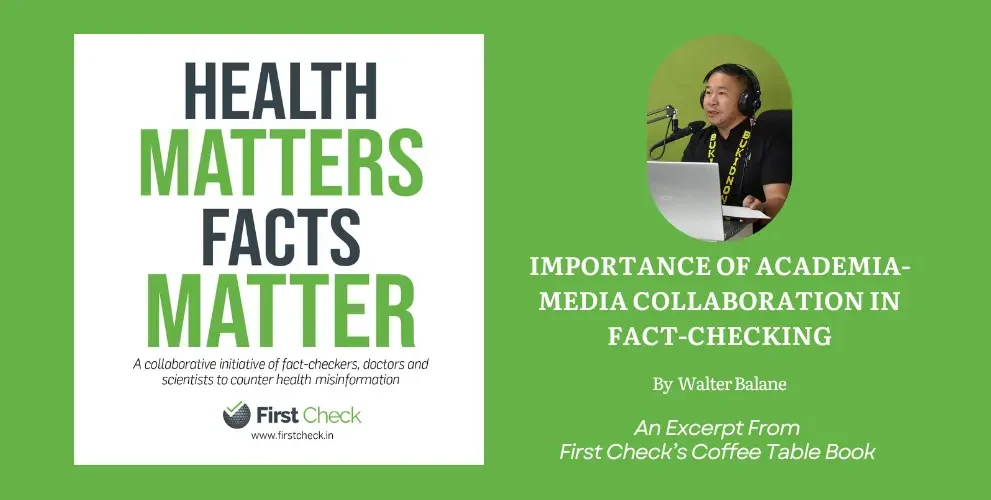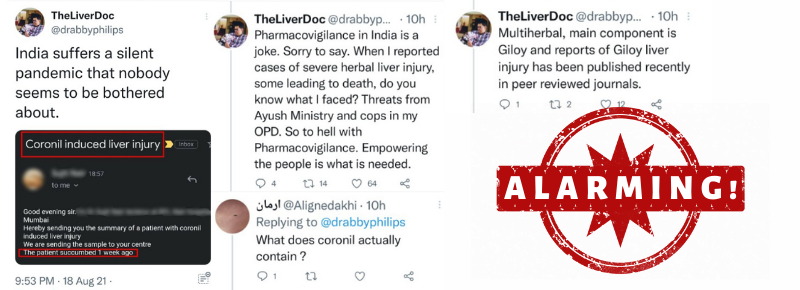Importance of Academia-Media Collaboration in Fact-Checking – An Excerpt From First Check’s Coffee Table Book
Author
Author
- admin / 2 years

- 0
- 3 min read

Author
Collaboration between universities and media organisations can significantly strengthen the fight against health misinformation by leveraging the expertise and resources of both sectors.
“Educators in universities can collaborate with media organisations to build fact-checking teams.”
A lot has changed since I started my fact-checking journey in 2019. Today, we have health experts who are media savvy as well as media professionals who have health education backgrounds. This is a good sign, opening new doors for positive possibilities.
In our Radio Program called Share to Heal (Pagambitay daw ag Kaulian) at the Bukidnon State University, the academe and the media see the interaction with health professionals as a strategic endevaour. While we seek to counter misinformation on specific health and development issues, the programme also tells audiences that they can use fact-checking to address some of their personal issues, which often times media cannot cover.
It’s no longer just media practitioners who do fact-checking work. There are inspiring initiatives, especially in communities, to promote fact-checking by citizens. I am a part of one such effort. Our volunteer group is working on capacity-building efforts with grassroots communities, including youths of a tribal community at the foot of Mt. Kitanglad Range Natural Park, a protected area and the ancestral domain of the indigenous peoples in the area. The indigenous peoples have become vulnerable to both natural and man-made hazards, like misinformation.
Given the pervasiveness of misinformation, I believe that all fact-checkers need to work together. The fact of the matter is that media organisations today are highly challenged with economic issues, low public trust, and the dwindling size of newsrooms, if they have not folded up already.
Professionals with more resources should own up the job of fact-checking. For example, educators in universities can collaborate with media organisations to build fact-checking teams. In terms of health fact checking, health agencies in the national and local levels need to transform their information units into active fact-checking teams. It is important to ensure that the Department of Health trains its staff to become fact-checkers, or at least be at the forefront of fact-checking initiatives to inspire more healthcare professionals join this fight.
There is an urgent need to conduct systemic and sectoral communication planning, which I think is lacking in most fact-checking initiatives. Piecemeal efforts are not enough; we need to understand and address the root cause of prevailing misinformation/disinformation. We also need to look at its supply and demand (producers and consumers) and how the regulation/control and support for counter action can address this effectively. We need policies to deter producers by way of punishment or putting up barriers to entry in order to address the supply side.
This is an excerpt from First Check’s Coffee Table Book, you can read the full Coffee Table Book here.
Walter Balane is the Associate Professor of Department of Development Communication at Bukidnon State University in Philippines and is a member of the First Check team of Experts.










